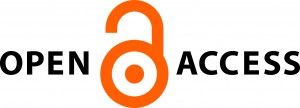Join us for four weeks of activities and awareness starting October 21, 2024. Each week, the Library will be focusing on a new topic related to Open Access. Make sure you stop by to learn more, or check out the full schedule of events, available here: https://libguides.lsuhsc.edu/scholpub/openaccessmonth2024

Open Access logo
Open access to information—the free, immediate, online access to the results of scholarly research and the right to use and re-use those results—has the power to transform the way research and scientific inquiry are conducted. It has direct and widespread implications for academia, medicine, science, industry, and for society as a whole. October 20-26 has been declared International Open Access Week, an opportunity for education and advocacy regarding the open sharing of information. Visit the Open Access Week website for more information about events being held around the world.
In honor of Open Access Week, LSUHSC-NO will be offering a Library Lunchtime Learning workshop on the topic tomorrow, October 21, at noon in the Computer Laboratory on the 4th floor of the Isché Library. We hope to see you there!
In honor of International Open Access Week, October’s Library Lunchtime Learning will focus on this hot topic in scholarly communication by introducing attendees to the concept and looking at the latest news in OA mandates. The workshop will also discuss predatory publishers (some of who disguise themselves in the cloak of open access) and how to identify article and conference solicitations that may not be on the up and up.
We hope to see you at 12 p.m. on either Thursday, October 9, in the Wirth Room (2203) on the Dental Campus or Tuesday, October 21, in the Ische Library’s Computer Lab for this important and timely topic. Please RSVP at dentlib@lsuhsc.edu if you can, but remember that drop-ins are always welcome.

Just as the second email ever sent was probably spam, the advent of open access publishing has brought individuals and businesses attempting to exploit scientists and researchers unfamiliar with their tactics. Becoming informed about these predatory publishers and how they operate is vital to avoiding their snare.
Predatory publishers and journals take advantage of the author-pay model of legitimate open access by charging large fees without providing any editorial or services and engaging in other nefarious behaviors, such as:
• Mimicking the name or web site style of more established journals.
• Accepting articles quickly with little or no peer review or quality control, including hoax and nonsensical papers (of course, more reputable journals sometimes have done the same).
• Notifying academics of article fees only after papers are accepted.
• Aggressively campaigning for academics to submit articles or serve on editorial boards.
• Listing academics as members of editorial boards without their permission or not allowing academics to resign from editorial boards.
• Appointing fake academics to editorial boards.
One strong source of information about predatory publishers is the Scholarly Open Access blog, written by Jeffrey Beall, Scholarly Initiatives Librarian at the Auraria Library, University of Colorado Denver. Beall’s lists of questionable publishers and standalone journals should be a first stop for information if you receive a suspicious solicitation from an unfamiliar journal.
An interesting article in the Times Picayune today discussed how the US government is requesting two major scientific publishers (Science and Nature) restrict details about the development of lab-bred bird flu in upcoming publications. The NIH funded research was conducted in the Netherlands and at the University of Wisconsin, in order to study the epidemiology of H5N1 avian influenza.
“…In a statement, Science editor-in-chief Dr. Bruce Alberts said his journal “has concerns about withholding potentially important public health information from responsible influenza researchers” and was evaluating how best to proceed.
Nature’s editor-in-chief, Dr. Philip Campbell, called the recommendations unprecedented.
“It is essential for public health that the full details of any scientific analysis of flu viruses be available to researchers,” he said in a statement. The journal is discussing how “appropriate access to the scientific methods and data could be enabled.”
After review by the US government’s biosecurity advisers, the Department of Health and Human Services requested the two journals not publish the full genetic information of lab bred bird flu, fearing it could fall into the wrong hands.
You would think that due to the First Amendment of the US Constitution, governmental agencies can only request the journals restrict details, and not openly censor the published work. However, according to the American Association for the Advancement of Science (AAAS) (which publishes Science), there are several methods to restrict publication and dissemination of research: classification, export controls, and pre-publication review. “Pre-publication review is sometimes used as a condition for accepting research grants or contracts. These restrictions are usually narrowly-targeted, and do not apply to whole fields of research.”
The AAAS has a useful if dated Issue Brief explaining these methods of publication control in their document “Science and Security in the Post-9/11 Environment-Scientific Publication Policies” (2004), as well as a link to resources and primary documents related to the regulation of scientific information (which is not unprecedented…hello, atomic bomb!).
More Info
20 December 2011 Science press release
http://www.aaas.org/news/releases/2011/1220herfst.shtml
20 December 2011 Nature News: “Fears grow over lab-bred flu”
http://www.nature.com/news/fears-grow-over-lab-bred-flu-1.9692

 myLSUHSC
myLSUHSC
